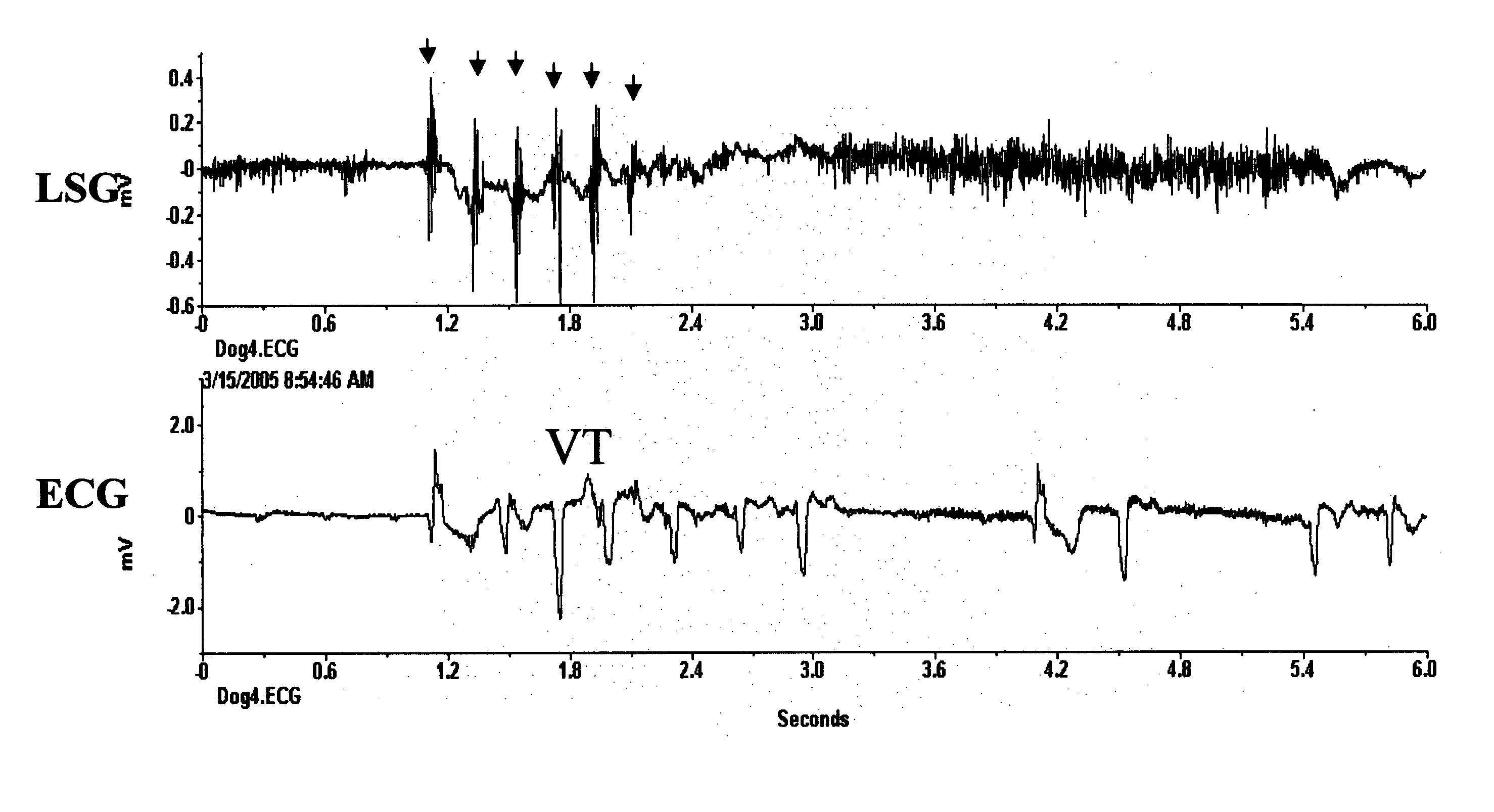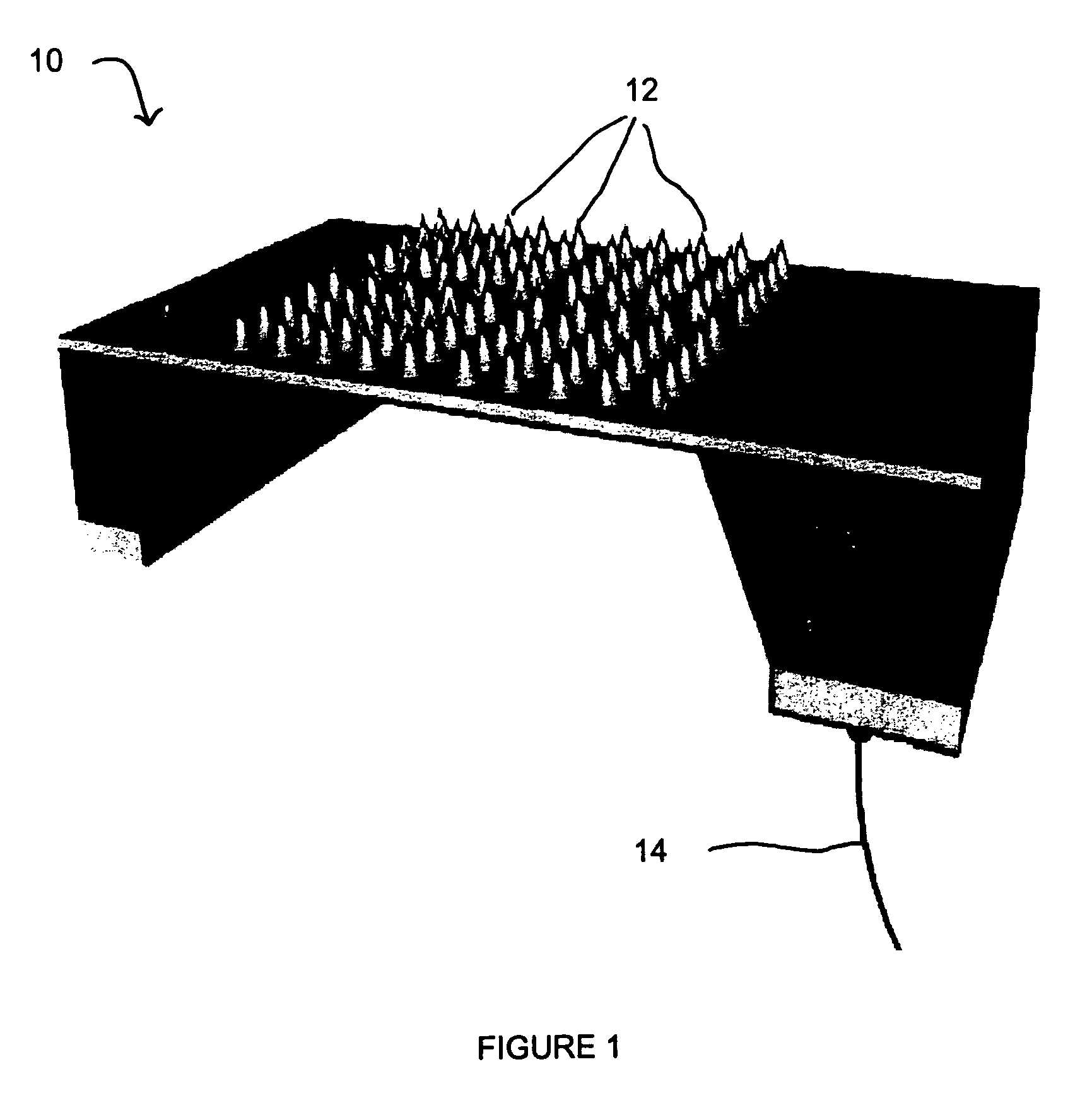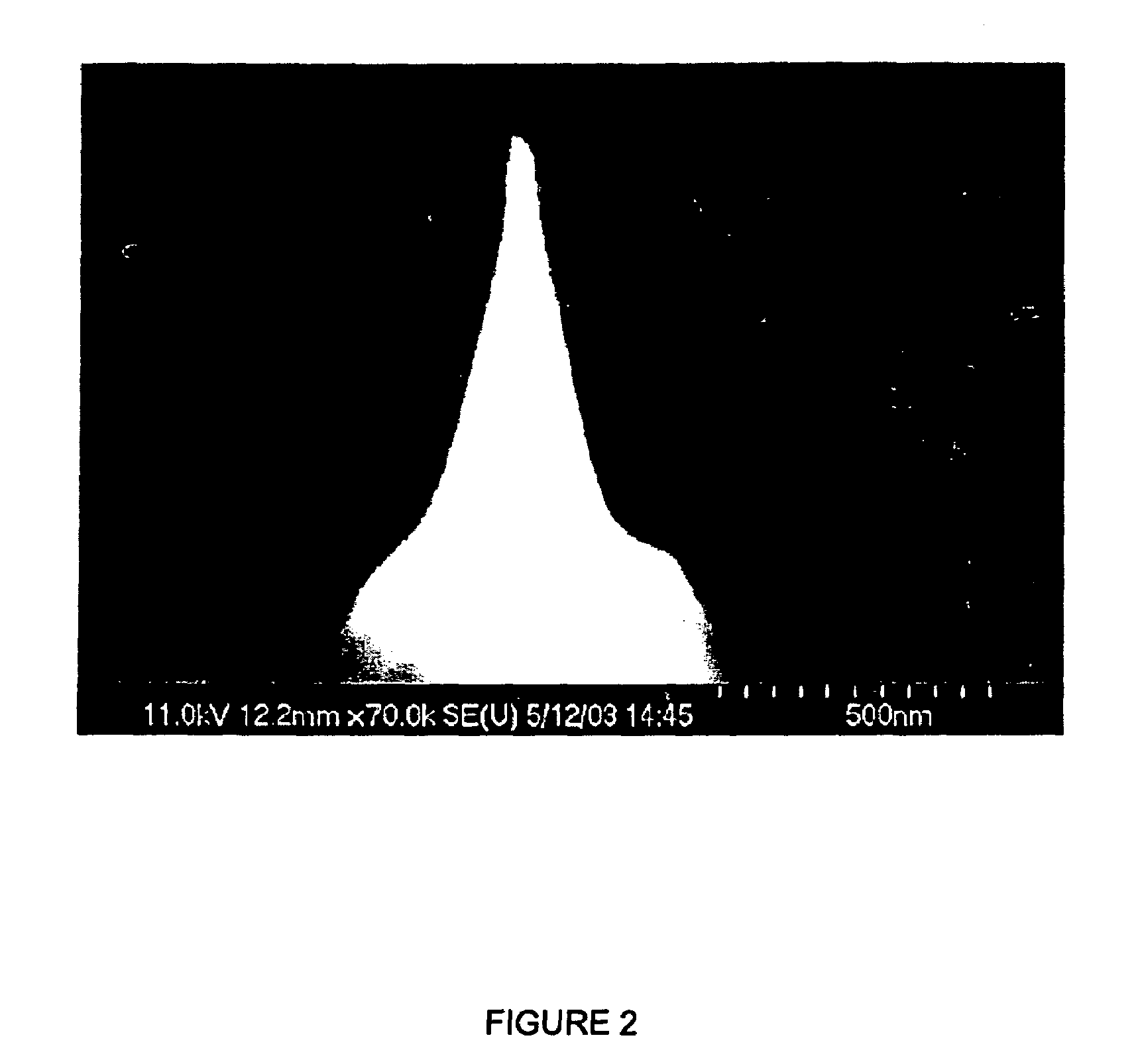Method and system for the prediction of cardiac arrhythmias, myocardial ischemia, and other diseased condition of the heart associated with elevated sympathetic neural discharges
a technology of cardiac arrhythmia and prediction system, which is applied in the field of methods and systems for the prediction of cardiac arrhythmia, can solve the problem of little time to protect the individual from death
- Summary
- Abstract
- Description
- Claims
- Application Information
AI Technical Summary
Benefits of technology
Problems solved by technology
Method used
Image
Examples
example 1
Rabbit Renal Sympathetic Nerve Recordings
[0076]A standard wire electrode and a nanoelectrode array was implanted on the renal sympathetic nerve of a New Zealand white rabbit. Simultaneous recordings of the ECG and renal sympathetic neural discharges were obtained. The renal sympathetic neural discharges was recorded with both a standard wire electrode and a nanoelectrode array and amplifier. The signals were digitized with a band pass filter of 30 to 500 Hz and a digitization rate of 1 K / sec.
[0077]FIG. 3 shows the ECG and renal sympathetic neural discharge recordings obtained from the rabbit. The nanoelectrode recordings provided a lower baseline noise than the wire electrode and therefore a higher signal-to-noise ratio. FIG. 3A shows bursts of renal sympathetic neural discharges, which did not correlate with changes in the heart rate. FIG. 3B shows the suppression of renal sympathetic neural discharges by intravenous bolus dose of xylazine and ketamine.
example 2
Sympathetic Neural Discharges of the Left Stellate Ganglion and Heart Rate Control
[0078]The relationship between the SGNA of the LSG and the heart rate was investigated in a normal canine subject. A normal canine subject was anesthetized with isofluorane and the chest was opened at the third intercostal space. The LSG was identified and a nanoelectrode was implanted under the fibrous capsule. The fibrous capsule was then closed with a 4-0 silk suture and additional sutures were placed on the wire to secure the nanoelectrodes. The nanoelectrodes were then connected to a DSI transmitter (DSI TL 10M3-D70-EEE, Data Sciences, International) with a low pass filter of 250 Hz and a digitization rate of 1 K / sec. An additional bipolar channel of the DSI transmitter was used for ECG recordings between the right and left chest. All recordings shared a common ground.
[0079]FIG. 4 shows the relationship between the SGNA of the LSG and heart rate in an ambulatory normal canine subject two weeks aft...
example 3
Relationship Between Sympathetic Neural Discharges and Heart Rate and Blood Pressure in Normal Canine Subjects
[0083]Stellate ganglion nerve activity (SGNA) of six (6) purpose bred class-A adult mongrel dogs (18-25 kg) was monitored used to study the relationship between SGNA and heart rate and blood pressure; the circadian variations of SGNA; and the effects of electrical stimulation of the stellate ganglia.
[0084]Sterile surgery was performed under general anesthesia. A DSI transmitter was used to record a total of 3 channels of electrograms. The sampling rate was 1,000 / s and each of the biopontential channels had a bandwidth of 1-100 Hz and shared the same ground wires implanted in the subcutaneous pocket near the transmitter.
[0085]The DSI transmitter model D70-EEE was used for five of the canine subjects to record one channel of SGNA from the LSG, one channel of SGNA from the RSG and one channel of ECG. The recording electrodes were implanted under the fascia of the stellate gangl...
PUM
 Login to View More
Login to View More Abstract
Description
Claims
Application Information
 Login to View More
Login to View More - R&D
- Intellectual Property
- Life Sciences
- Materials
- Tech Scout
- Unparalleled Data Quality
- Higher Quality Content
- 60% Fewer Hallucinations
Browse by: Latest US Patents, China's latest patents, Technical Efficacy Thesaurus, Application Domain, Technology Topic, Popular Technical Reports.
© 2025 PatSnap. All rights reserved.Legal|Privacy policy|Modern Slavery Act Transparency Statement|Sitemap|About US| Contact US: help@patsnap.com



